
16 Y.O. Can’t See His ‘GF’ Demanding Gifts Is A Scammer, Dad Takes Away His Credit Card Privileges
We all remember the intensity of first love: stolen glances, late-night calls or these days, late-night texts. It was a time when emotions ran high and we’d do almost anything to make the other person happy.
But this Redditor’s son is discovering a harsh reality about young love – sometimes, it can be manipulative. He’s fallen for someone online, but this newfound “love interest” seems less interested in connection and more interested in expensive gifts, resorting to threats if they aren’t delivered.
More info: Reddit
First love, with its intense emotions and desire to please, can lead us to do crazy things.
Image credits: Yan Krukau (not the actual photo)
The poster’s son went above and beyond for his girlfriend, purchasing gifts for her
Image credits: ANTONI SHKRABA production (not the actual photo)
The teen met her online and though he had never seen her face, he bought her new stuff on a regular basis or she’d threaten him with a breakup
Image credits: Mikhail Nilov (not the actual photo)
Image credits: Educational-Error705
The father told him that he was going to pay for the charges but expected the teen to pay him back, which he didn’t like
The situation at hand today features a father, son and the son’s dubious love interest. The son, an avid gamer, used his card to purchase in-game items for the girlfriend he met online.
The trouble began when the son, who communicates with his online girlfriend solely through text chat, began racking up charges of $50-$100 on the game they both play. The father, who had previously provided his son with a credit card with a spending limit and clear instructions on responsible use, expressed concern about the unauthorized charges, especially considering the son receives gift cards for the game on holidays.
Upon confronting his son, the father learned that the online girlfriend had pressured the teenager into buying in-game items, threatening to end their relationship if he refused. While the father ultimately agreed to pay off the charges, he insisted that his son reimburse him. This decision, however, has created tension between the two. The son, citing commitments to school and sports, is reportedly unhappy with the prospect of getting a job to pay back the money. The credit card has also been confiscated.
Well, commenters generally agreed that the son was definitely being scammed. Some raised concerns about the poster allowing his 16-year-old unsupervised access to a credit card without teaching him about online safety and the potential for scams. This lack of education likely contributed to the situation, as the vast and uncensored nature of the internet presents a range of dangers for unsupervised teenagers.
They can be exposed to inappropriate content, from violence and adult content to hateful ideologies and disturbing imagery. This exposure can be emotionally damaging and even lead to real-world consequences.
Image credits: Julia M Cameron (not the actual photo)
Furthermore, online predators can lurk in chat rooms and social media platforms, posing a serious threat to a teenager’s safety. These individuals may use deceptive tactics to gain a teenager’s trust, potentially leading to emotional manipulation, financial exploitation, or even physical harm.
Unsupervised internet use also creates risks related to privacy and security. Teenagers may unknowingly share personal information online, making them vulnerable to identity theft or targeted scams. Additionally, the addictive nature of some online activities can lead to problems with sleep, schoolwork, and social development. Without guidance, teenagers may struggle to navigate the online world responsibly, potentially hindering their overall well-being.
“Teenagers are often inclined to be very impulsive. Combine this inclination with the overwhelming nature of young love and the desire to please their partner, and teenagers are prone to the odd mistake,” an article by Understanding Teenagers points out.
This can result in teens using social media and technology in ways that will damage their reputations in pursuit of love. The author’s son exhibits classic signs of falling victim to an online scam. The red flags are numerous. Firstly, the entire relationship hinges on online text chat, with no video calls or even phone conversations. This anonymity allows the “girlfriend” to manipulate the situation without revealing their true identity.
Teenagers in the throes of a new online relationship might be blinded by their feelings, making them susceptible to manipulation. The emotional attachment can cloud their judgment, preventing them from recognizing tactics commonly used by online scammers. In this case, the girlfriend’s threat to end the relationship if the in-game items weren’t purchased is a classic example of emotional manipulation used to exploit feelings and extract money. Without a healthy dose of skepticism and open communication with parents, teenagers can easily fall victim to such scams.
So, the question remains: Was the father’s anger justified? On one hand, his son did disobey financial boundaries and fall victim to a scam. The anger might stem from a mix of disappointment and concern for his son’s well-being. However, some might argue that a calmer approach, focusing on teaching the importance of online safety and responsible spending, could have yielded better results. Let’s hear from you in the comment below.
Commenters were of the opinion that this was definitely a scam and the OP needed to step in to ensure the teen was more careful
I cannot fathom giving a 16 year old access to a credit card.
So glad I was a fully fledged adult before chat rooms and social media were available to me.
Sit that boy down and make him watch at least a season worth of Catfish.
I cannot fathom giving a 16 year old access to a credit card.
So glad I was a fully fledged adult before chat rooms and social media were available to me.
Sit that boy down and make him watch at least a season worth of Catfish.

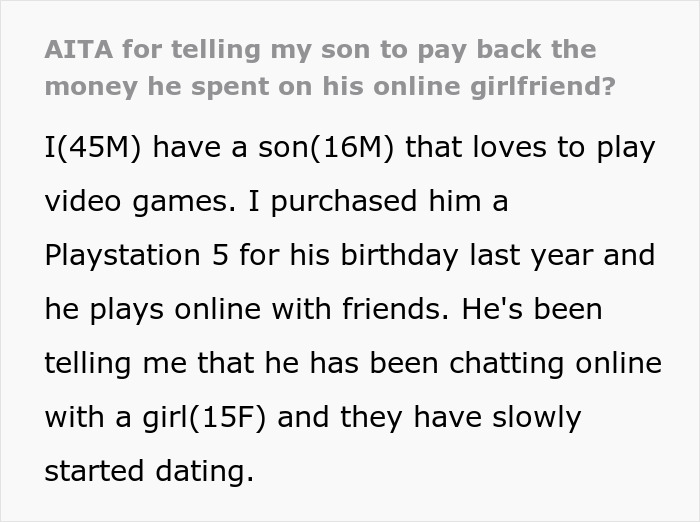


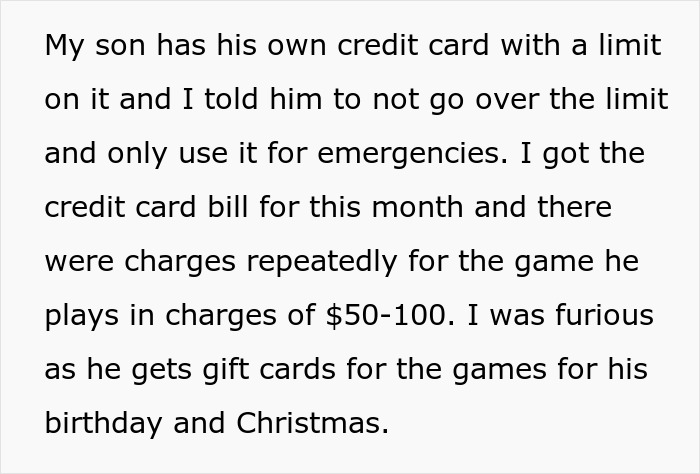
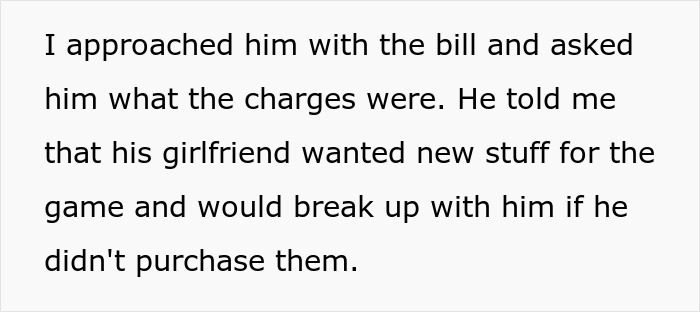

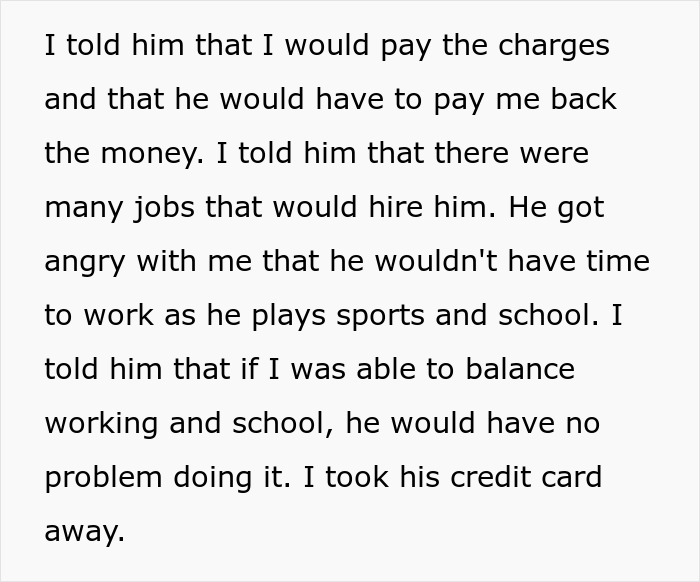



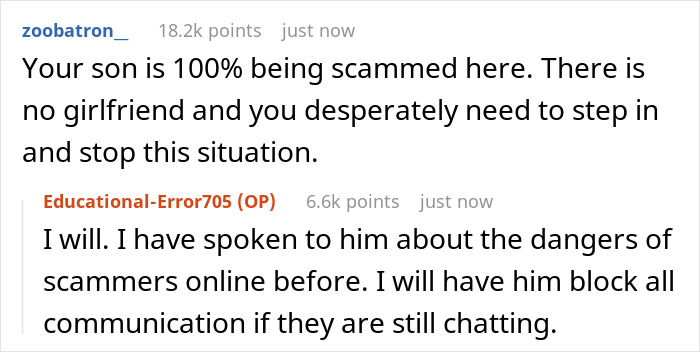
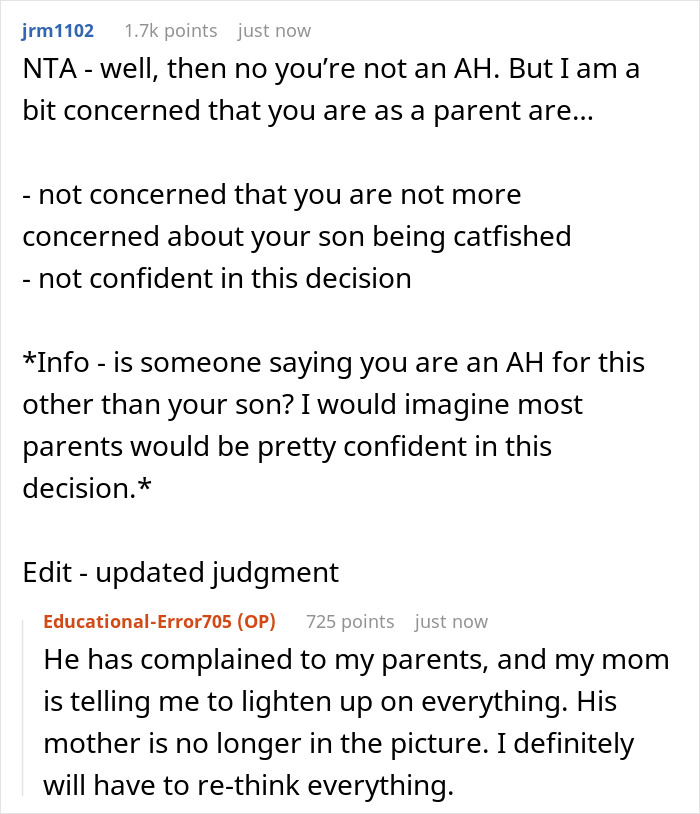

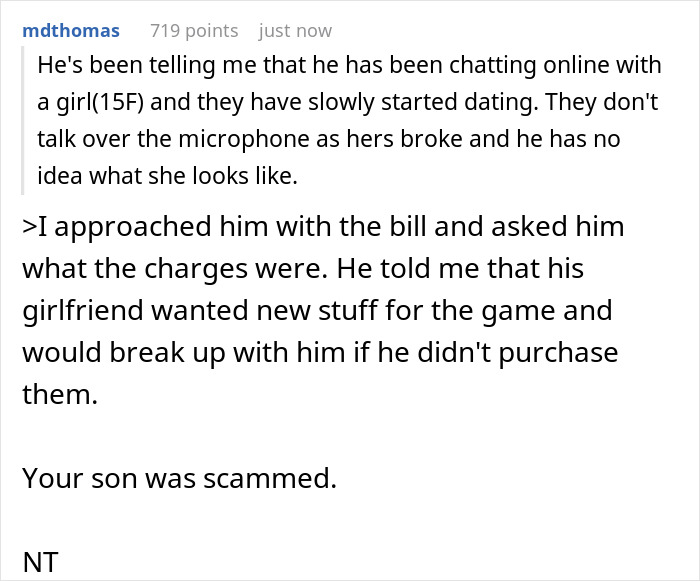
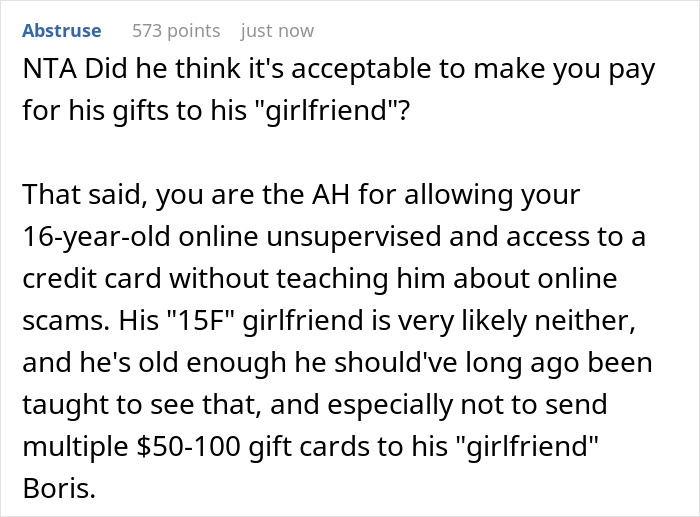

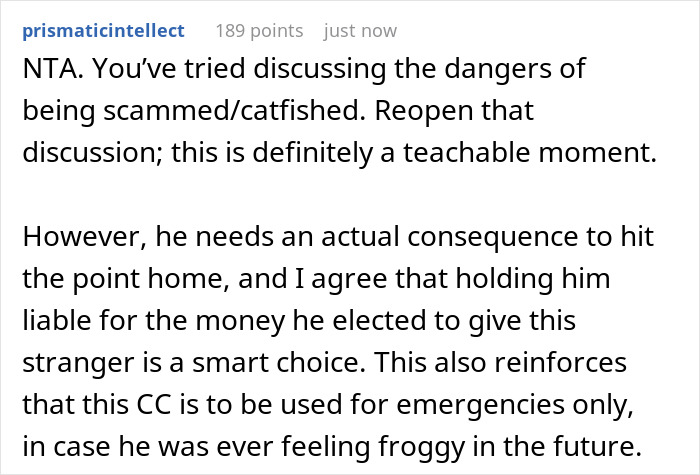

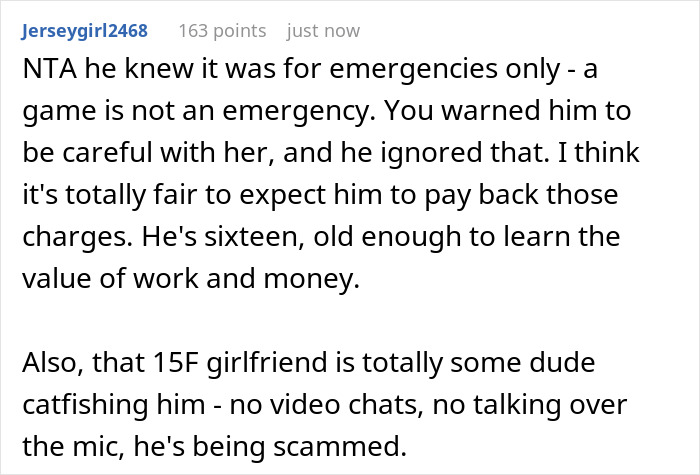
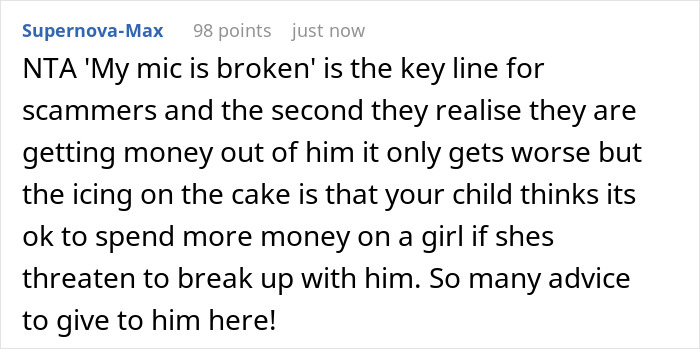




11
39